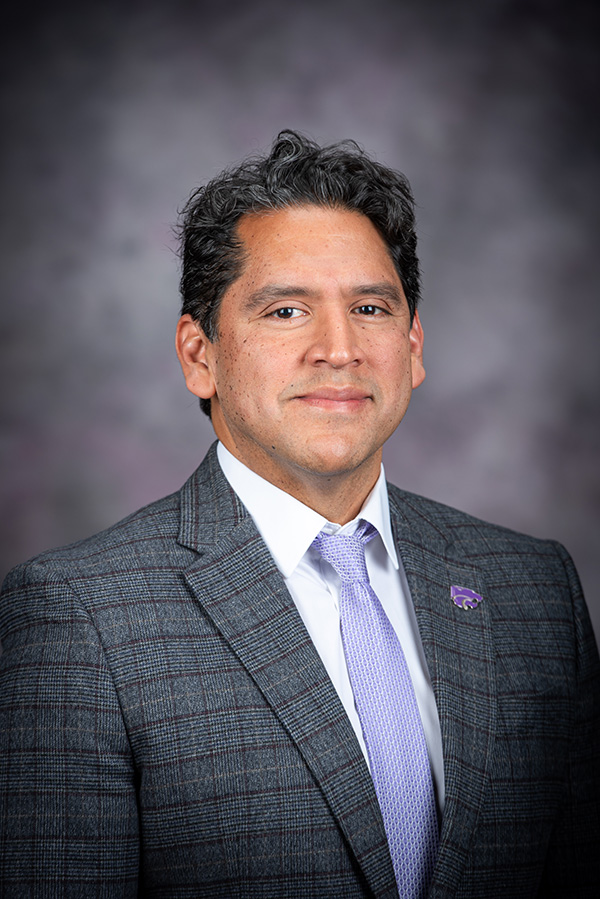Meet the Provost and Executive Vice President
 Jesse Perez Mendez serves as Provost and Executive Vice President of Kansas State University, providing leadership for the university’s academic endeavors and shaping the academic culture of K-State.
Jesse Perez Mendez serves as Provost and Executive Vice President of Kansas State University, providing leadership for the university’s academic endeavors and shaping the academic culture of K-State.
As the university’s chief academic officer, Mendez provides strategic oversight for academic planning, resource allocation and innovation in all academic programs —undergraduate and graduate; on-campus, hybrid and online — while ensuring excellence and relevance in the design of curriculum. Mendez has a sharp focus on the quality of teaching and learning; providing global perspective and strategic direction to successfully manage operating budgets; promoting the development of K-State’s research programs by championing high academic standards in faculty appointments and research contributions; and developing and enhancing the student experience to meet the needs of today’s learners.
The deans of the eight academic colleges, the K-State Libraries, Graduate School, Staley School of Leadership, and the CEOs and deans of both K-State Salina and K-State Olathe report to Mendez. University offices also reporting to Mendez include Enrollment Management; Institutional Effectiveness; Data, Assessment and Institutional Research; International Programs; and Academic Success and Student Affairs.
Mendez is also responsible for supervising K-State’s strategic enrollment and student retention efforts and identifying and implementing strategies to reach the goals outlined in the Next-Gen K-State strategic plan. He also manages ongoing academic reporting responsibilities to the Kansas Board of Regents, and works closely with the K-State Alumni Association, KSU Foundation and K-State Athletics on endeavors to advance K-State’s academic operations and reputation.
Mendez joined Kansas State University in May 2024. Prior to that, he served as dean of the College of Education at Texas Tech University from 2019-2024. Prior to joining Texas Tech, Mendez served as dean and professor at Indiana University-Purdue University Indianapolis School of Education. Mendez’s additional professional experience includes serving as associate dean for academic affairs in the College of Education and Community Innovation for the University of Central Florida, head of the School of Educational Studies at Oklahoma State University and a governor-appointed regent for the Northern Oklahoma College Board of Regents.
Mendez earned his bachelor’s degree in political science and history from Midwestern State University and a master’s in political science from Texas Tech University. He earned a juris doctorate from the Maurer School of Law and a doctorate in higher education and student affairs, both from Indiana University.
In 2015, Mendez was named an American Council on Education Fellow and served a term as a member-at-large of the American Association of Colleges for Teacher Education Board of Directors. At Oklahoma State University, he received the OSU College of Education Leadership & Service Excellence Award and held the John A. and Donnie Brock Professorship in Educational Leadership and Policy.